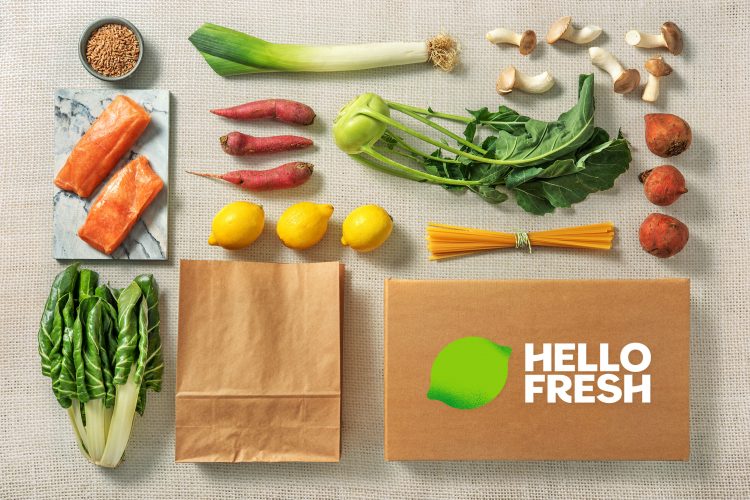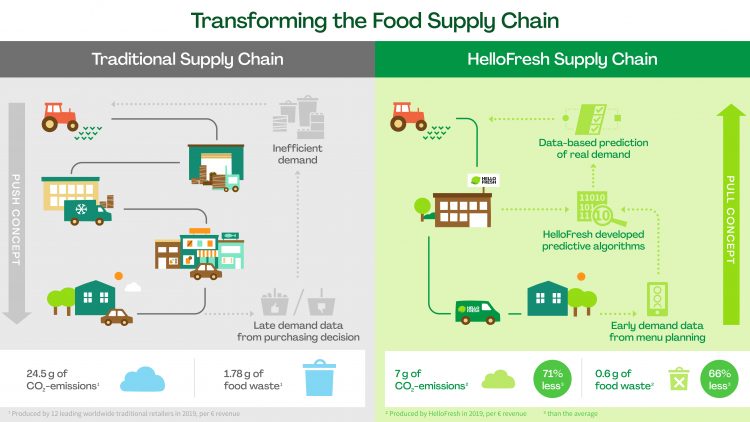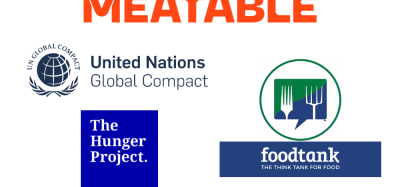How HelloFresh became carbon neutral
- Like
- Digg
- Del
- Tumblr
- VKontakte
- Buffer
- Love This
- Odnoklassniki
- Meneame
- Blogger
- Amazon
- Yahoo Mail
- Gmail
- AOL
- Newsvine
- HackerNews
- Evernote
- MySpace
- Mail.ru
- Viadeo
- Line
- Comments
- Yummly
- SMS
- Viber
- Telegram
- Subscribe
- Skype
- Facebook Messenger
- Kakao
- LiveJournal
- Yammer
- Edgar
- Fintel
- Mix
- Instapaper
- Copy Link
Posted: 22 March 2021 | Tilman Eichstaedt | No comments yet
HelloFresh’s Tilman Eichstaedt explains how the company offset 100 percent of its direct carbon emissions and became the first global carbon-neutral meal kit company.


HelloFresh’s Journey to Carbon Neutrality
Global meal kit provider, HelloFresh, has exceeded its sustainability goals and plans to expand its efforts in the future. Tilman Eichstaedt, SVP of Supply, Product & Sustainability, shares more about the brand’s commitment to becoming more environmentally friendly.
Achieving Carbon Neutrality
HelloFresh made history by offsetting 100% of its direct carbon emissions, becoming the first global carbon-neutral meal kit provider. The company achieved this by executing a comprehensive carbon reduction strategy. Key actions included reducing emissions at production facilities and offsetting emissions from internal operations, offices, corporate travel, and customer deliveries.
HelloFresh implemented these reductions by improving operational efficiency. The company replaced conventional energy sources with renewable energy and invested in photovoltaic installations at production facilities.
Streamlined Supply Chain: Less Energy, Fewer Emissions
HelloFresh’s supply chain is short and innovative, using less energy and generating fewer emissions. The brand reduces transport time and eliminates the need for extra storage by sourcing ingredients locally. Fewer stops between suppliers and customers help reduce the carbon footprint. This approach means fewer buildings to heat, cool, and light, which saves energy and lowers emissions throughout the supply chain.
Additionally, HelloFresh optimises delivery routes to minimise carbon emissions during transit. This focus on efficiency helps the brand cut emissions at every stage.
Reducing Food Waste and Its Environmental Impact
One of the key ways HelloFresh reduces its carbon footprint is by cutting down on food waste. The company provides pre-portioned ingredients, ensuring customers receive only what they need for each recipe. This approach reduces the amount of food that might otherwise end up in a landfill, where it could produce greenhouse gases, including carbon emissions.
The UN estimates that food waste accounts for 8–11% of global greenhouse gas emissions. For each item of food, there’s an energy cost and labour investment behind it. HelloFresh is committed to reducing food waste, knowing it directly impacts their carbon footprint.
Setting Ambitious Carbon Reduction Goals
At HelloFresh, carbon emissions are tracked on a per-source basis. The company sets reduction targets based on these sources. Looking ahead, HelloFresh has set an ambitious goal to reduce emissions at production facilities by 60% per euro of revenue. While offsetting emissions is important, the company focuses on finding ways to avoid and minimise its carbon footprint throughout operations.
The Benefits of a Shorter Supply Chain
Compared to traditional food supply chains, the HelloFresh model is more streamlined. The traditional food supply chain includes multiple steps, each requiring packaging and cold storage. Shoppers typically don’t see the packaging waste as food moves from one stage to the next before reaching supermarket shelves. Retailers also push items to consumers in standard volumes, which often leads to excess packaging and waste.
HelloFresh, however, uses a direct-to-consumer model that combines technology with the traditional food retail supply chain. Through advanced analytics and machine learning, the company can accurately predict customer demand. This “consumer demand-driven pull model” allows HelloFresh to reduce food waste by providing customers only with the exact amount of food they need.


The difference between the traditional supply chain and the HelloFresh supply chain
Broadening Monitoring Efforts
HelloFresh is committed to continuous innovation and improvement in sustainability. This includes tracking and monitoring every aspect of our supply chain—reducing carbon emissions, minimising food waste, improving packaging efficiency, and sourcing ingredients responsibly.
Our system allows us to track all of these areas, and since we plan all orders on a weekly basis, we can adapt quickly to changes. We monitor carbon emissions on a per-source basis, aligning the process with our business operations. This approach helps us learn from our activities and make informed adjustments to improve sustainability.
Monitoring Food Waste
From a food waste perspective, HelloFresh US developed a procurement dashboard to track yield from bulk orders, buffer volumes, supplier performance, and food waste. This dashboard gives us immediate access to key data from the previous week, enabling us to better monitor and manage waste.
Carbon Emissions and Sustainability
Tracking and reducing per-meal carbon emissions aligns with the UN’s Sustainable Development Goal 13. HelloFresh holds itself to high standards of accountability in this regard. To this end, we have set clear, company-wide targets to reduce food waste and carbon emissions in production facilities.
Welfare in Mind
Our sustainability goals extend beyond environmental impact. We also prioritise the welfare of all our stakeholders, including employees, suppliers, customers, and local communities.
We take pride in creating safe, inclusive working conditions for all employees. We engage in ethical trading practices, ensure data protection, and maintain the highest standards for food quality and safety. At HelloFresh, we value the rights and welfare of our staff and have cultivated strong relationships with our trusted suppliers worldwide.
Commitment to Ethical Labour Practices
HelloFresh is dedicated to ensuring fair and ethical labour conditions for the employees of our suppliers and service providers. Our Ethical Trading Policy formalises this commitment. It outlines our expectations for how workers should be treated, following the standards set by the International Bill of Rights and the International Labour Organization’s (ILO) Declaration on the Fundamental Principles and Rights at Work.
Fostering an Inclusive Work Environment
We are committed to creating an inclusive workplace for all. As highlighted in our Code of Conduct, our company values emphasise non-discrimination and diversity, rooted in mutual respect, trust, and fairness. We collaborate closely with our Talent Acquisition teams to promote inclusive hiring practices and strengthen our Diversity, Equity & Inclusion (DE&I) initiatives.
Health and Safety as a Priority
The health and safety of our customers and employees is of utmost importance. During the COVID-19 pandemic, we followed local government guidelines and implemented additional health and safety measures across all facilities. These measures included temperature screenings, installing thermal monitoring cameras, providing face masks and personal protective equipment (PPE), enforcing social distancing, and offering 14-day sick leave for staff who tested positive for the virus.
About the author
Tilman Eichstaedt is SVP Supply, Product & Sustainability at HelloFresh
Related topics
Packaging & Labelling, Recruitment & workforce, Supply chain, Sustainability, Technology & Innovation








